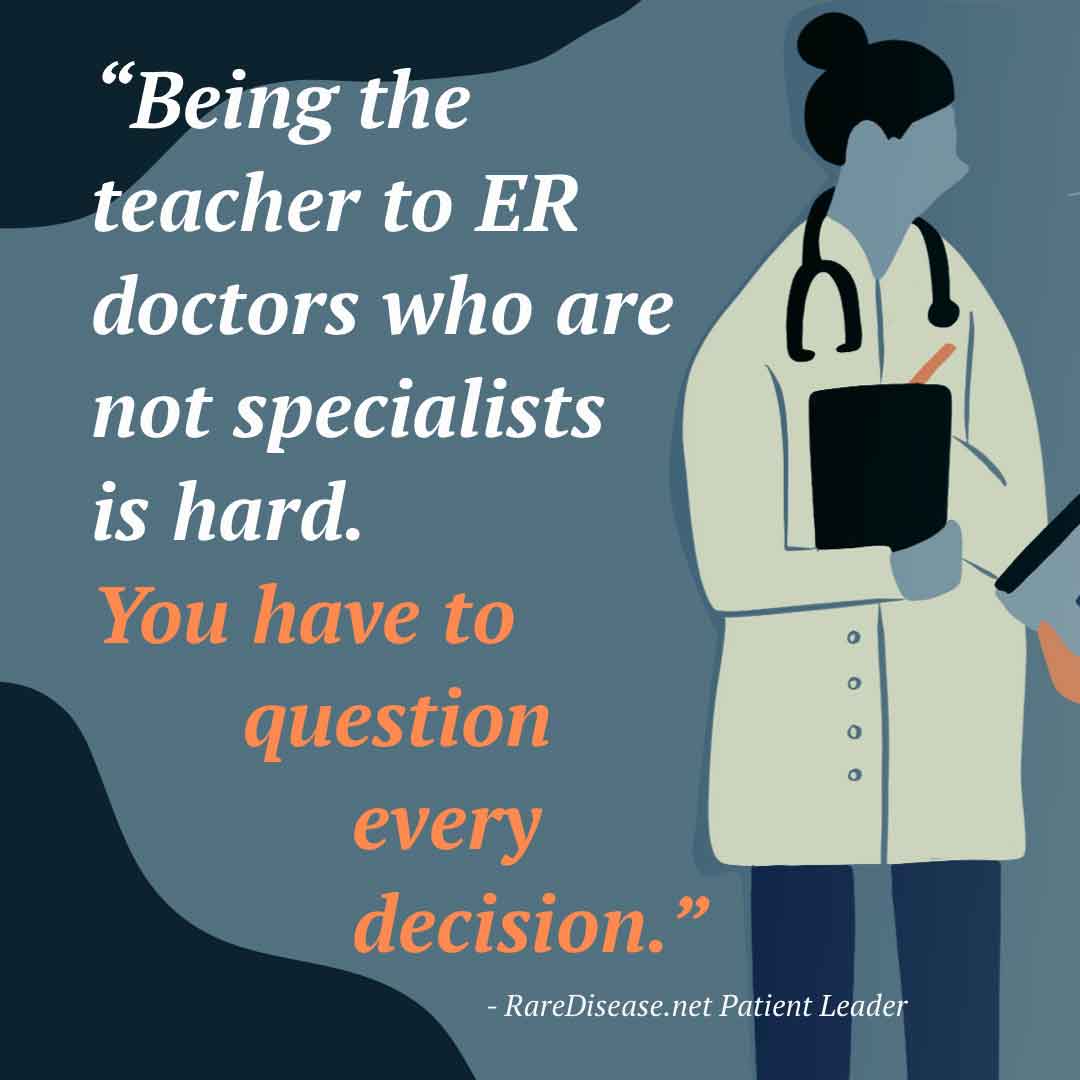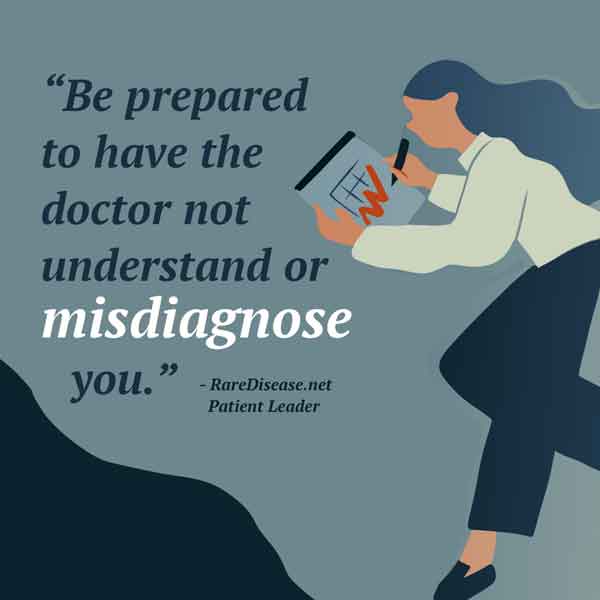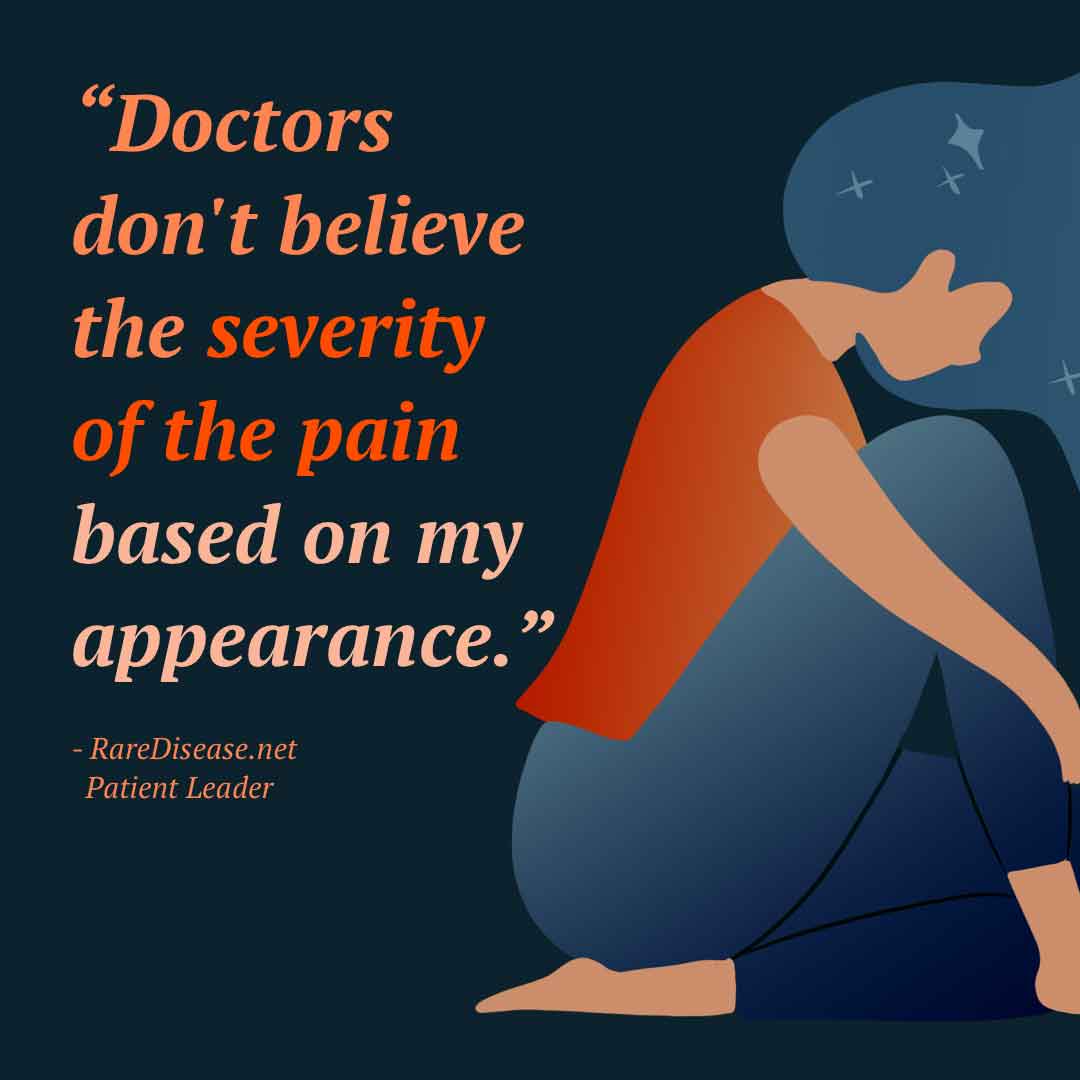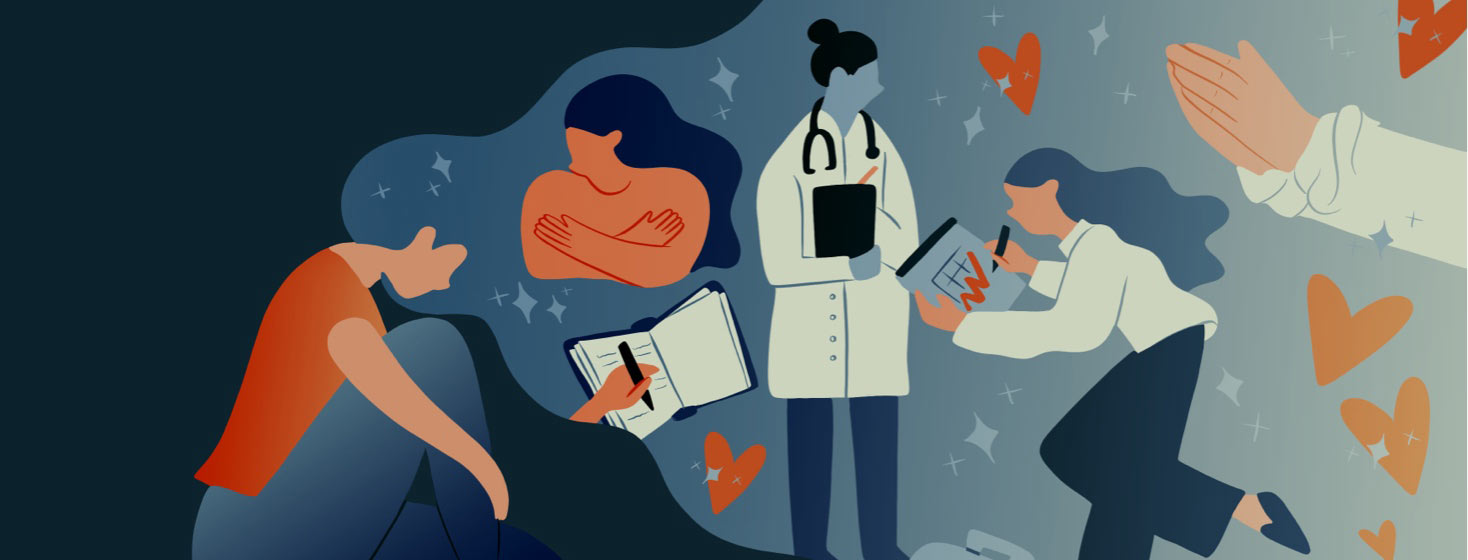Community Views: Navigating the ER as a Rare Disease Warrior
Living with a rare disease creates obstacles to healthcare. Specialist doctors understand rare diseases best. But sometimes, you need emergency care. And most doctors in the emergency room (ER) are unfamiliar with rare diseases.
The RareDisease.net Facebook page and the Social Health Network recently discussed emergency care for rare diseases. Questions included:
What is your best advice to those living with a rare disease who have to visit the emergency room?
What are your biggest obstacles when visiting an emergency room with a rare disease?
Here are some of the insights community members shared about navigating ER visits with a rare disease.
Carry some medical history
The most common response was to bring along information about your medical history. It can help if you have a list of your:
- Doctors
- Treatments
- Drugs and dosages
“Make sure you have a short cheat sheet or 'Cliff Notes' version of your health history. Include medications, diseases, specialists you see, and allergic reactions to medications.”
“Create a 1-pager summarizing where you are now in chronic care, keep it updated, and bring it with you.”
“Always keep a brief description of your condition in your wallet.”
Speak up and ask questions
Respondents also shared the importance of advocating for themselves. They have knowledge and experience of their rare disease. Speaking up is vital. Bringing someone along to help advocate is beneficial.

“Advocate for yourself! Nothing can happen without your permission.”
“Have someone with you who can advocate for you.”
“Always remember you know you best.”
“Don’t be afraid to tell the doctor what you think your treatment should be or what doctors who have experience with your condition have prescribed.”
“Ask what they are going to do before they proceed with any treatment.”
Lack of knowledge
ER doctors are not rare disease specialists. The person with the rare disease often knows more about their condition than the ER doctor. It is challenging to educate the doctor when you are in extreme pain or having some other medical emergency. Coming prepared with information about your condition can help.
“They literally don't know what the heck my rare diseases are. I have to carry around a medical binder with all the information, allowing them to review and decide if they want to touch me or send me to a specialty hospital.”
Medical gaslighting
Medical gaslighting with a rare disease is common in the ER. Doctors lack awareness of the disease. They may dismiss a genuine pain crisis. Or they may assume the person with a rare disease is drug-seeking.

“They have no idea how to treat you, or you are dismissed as having an anxiety attack or being a pill shopper.”
“I have also been accused of attention seeking, having ‘low’ pain tolerance (ie, put your big girl panties on), and drug-seeking.”
Choose calm
It can be difficult to stay calm when you are having pain or stress. Delays in treatment raise anxiety and tempers. Some members of the community mentioned that being patient improved their interactions with doctors.
“My best advice is to remain calm and think of the best outcome, not the worst.”
“My best advice is to be patient and kind even though it's hard when you're in pain and unfocused.”
“Coin a few specific phrases. Practice saying something like: ‘I understand you’ve declined further testing. Please note in my chart why you did so – I’d like a copy for my records.’ ”
“Try to keep as calm as possible.”

Thank you for being part of this community
We appreciate members of the RareDisease.net community and your honest responses. Sharing your experiences not only validates others, it can also help another community member avoid problems in the future!
Have you had to go to the ER since your rare disease diagnosis? What tips would you give other members of the community? Tell us in the comments below!

Join the conversation